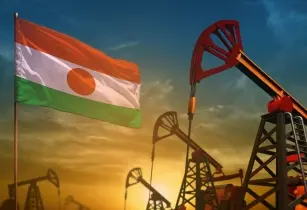The International Energy Agency (IEA) has predicted that the global demand for oil and gas to increase and oil demand alone to expand by 3.3 mmbbl per day in 2022 and return to pre-COVID levels of 99.7 mmbbl per day
These developments are expected to provide an opportunity for African producers such as Niger to expand its oil and gas industry and help meet demand.
The recent signing of the Declaration of Niamey’ between the energy ministries of the Republic of Niger, Algeria and Nigeria during the Economic Communities of West African States (ECOWAS) Mining and Petroleum Forum (ECOMOF) in Niamey on 16 February 2022 is a game changer that will unlock the potential of the country’s oil and gas sector in meeting global energy demand.
The agreement paves way for the development of the multi-billion, 4,128km Trans-Saharan Gas Pipeline project which will connect the three African countries with the European market to trade up to 30 billion cubic meters of natural gas per annum.
A US$4.5bn ,950km pipeline project is also underway in Niger and expected to increase the country’s production capacity by five times by 2023, once the project is operational, setting up the West African state as an energy hub for meeting both regional and continental energy demand.
With the right policies and infrastructure development in place, Niger’s oil and gas sector is expected to account for approximately 24% of the country’s GDP, 45% of tax revenues, 68% of exports as well as 8% to 12% of formal employment by 2025.
Niger’s vast oil and gas resources remain untapped and discussions to held at African Energy Week 2022 (AEW), Africa’s leading investment platform, taking place in Cape Town from 18-21 October 2022 – will focus on how models implemented in leading gas and oil producers such as Nigeria, Libya and Angola can be replicated to grow Niger’s exploration and production.








